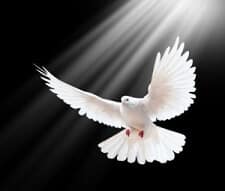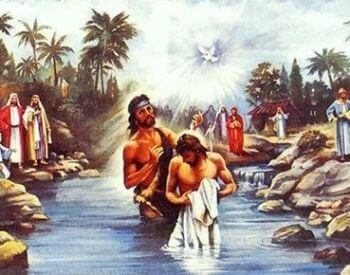 “Grace to you and peace from God our Father and the Lord Jesus Christ.” These are the last words of the second reading for mass today, but they are filled with the Holy Spirit. Saint Paul’s words were written for the early church in Corinth, but they apply to us today just as well. Some things are timeless. The Holy Spirit guides the church throughout the ages. The Catholic church does not continue to exist after 2,000 years because of the efforts of men, who are often inconsistent and sinful. It is the Holy Spirit who guides Our church. The Holy Spirit heals, reconciles us with the Father and the Son, and guides our lives according to the God’s will.
“Grace to you and peace from God our Father and the Lord Jesus Christ.” These are the last words of the second reading for mass today, but they are filled with the Holy Spirit. Saint Paul’s words were written for the early church in Corinth, but they apply to us today just as well. Some things are timeless. The Holy Spirit guides the church throughout the ages. The Catholic church does not continue to exist after 2,000 years because of the efforts of men, who are often inconsistent and sinful. It is the Holy Spirit who guides Our church. The Holy Spirit heals, reconciles us with the Father and the Son, and guides our lives according to the God’s will.
In the first reading, Saint Paul says, “to you who have been sanctified in Christ Jesus, called to be holy, with all those everywhere who call upon the name of our Lord Jesus Christ, their Lord and ours. Grace to you and peace from God our Father and the Lord Jesus Christ.” This is also a greeting to all people, from all walks of life, in many different countries throughout the world. We are one body, one church in Christ Jesus. No matter where you live, we are your brothers and sisters in Christ. Most Catholics who read these words today will never meet during our earthly life, but perhaps we will in the life to come, where there are no boundaries of time or space. We will live in the Spirit of Christ forever, as one family in our Father’s Kingdom and there will be no strangers there, only brothers and sisters. Our baptism and communion forms us into the body of Christ, but also joins us together as one family, God’s children.
John the Baptist was Jesus’ cousin, but he said in today’s gospel that he did not know him. John baptized many people during his ministry, but can you image what he must have felt like, when he realized that the son of God himself had came to him for baptism? One small clue as to his feelings was when he said, “Behold, the Lamb of God.” Jesus was innocent, pure and gentle. He would be a sacrifice for the sins of all people throughout the world and throughout all generations of people until the end of time.
Saint John the Baptist lived almost exclusively by the guidance of the Holy Spirit, who directed his entire life’s purpose. John had no way of knowing about Jesus and about his life’s mission, except for God’s revelation. He said that he did not know Jesus, but the one who sent John to baptize with water told him, ‘On whomever you see the Spirit come down and remain, he is the one who will baptize with the Holy Spirit.’
For many of us though, it is difficult to trust God’s revelations, or the promptings of the Holy Spirit the way that John the Baptist did. Simple things yes, like maybe an impulse to do a kindness for another person, but what about larger things? We know that Jesus calls men to the priesthood and women to the religious life. Married couples are also called to their vocation in life as well. But, anyone from any state in life, can be called by God to do something else for Him, that God would like done. If this happens to you, how would you recognize and trust this calling?
The prompting of the Holy Spirit is something most of us have felt at some point in our lives, but to trust that the promptings of the Holy Spirit are genuine, is sometimes a different story. It’s hard to trust that it isn’t just your imagination. Actually doing something concrete about the promptings of the Holy Spirit is not always easy to do. We may take a step or two toward obeying God’s promptings and then question ourselves if we are doing the right thing. Is it really God’s will? Saint John the Baptist is our spiritual hero, because he lived his life on faith alone. Jesus Christ was his reason for living, and his reason for dying as well.
Is Jesus really your main focus in life? Most of us love the Lord and live out our faith in small, everyday ways, but we should also be aware that yes, we too, could be called to do something more, something on a larger scale than anything we may feel capable of doing. We should try to remember though, that God doesn’t call the trained, he trains the called.

